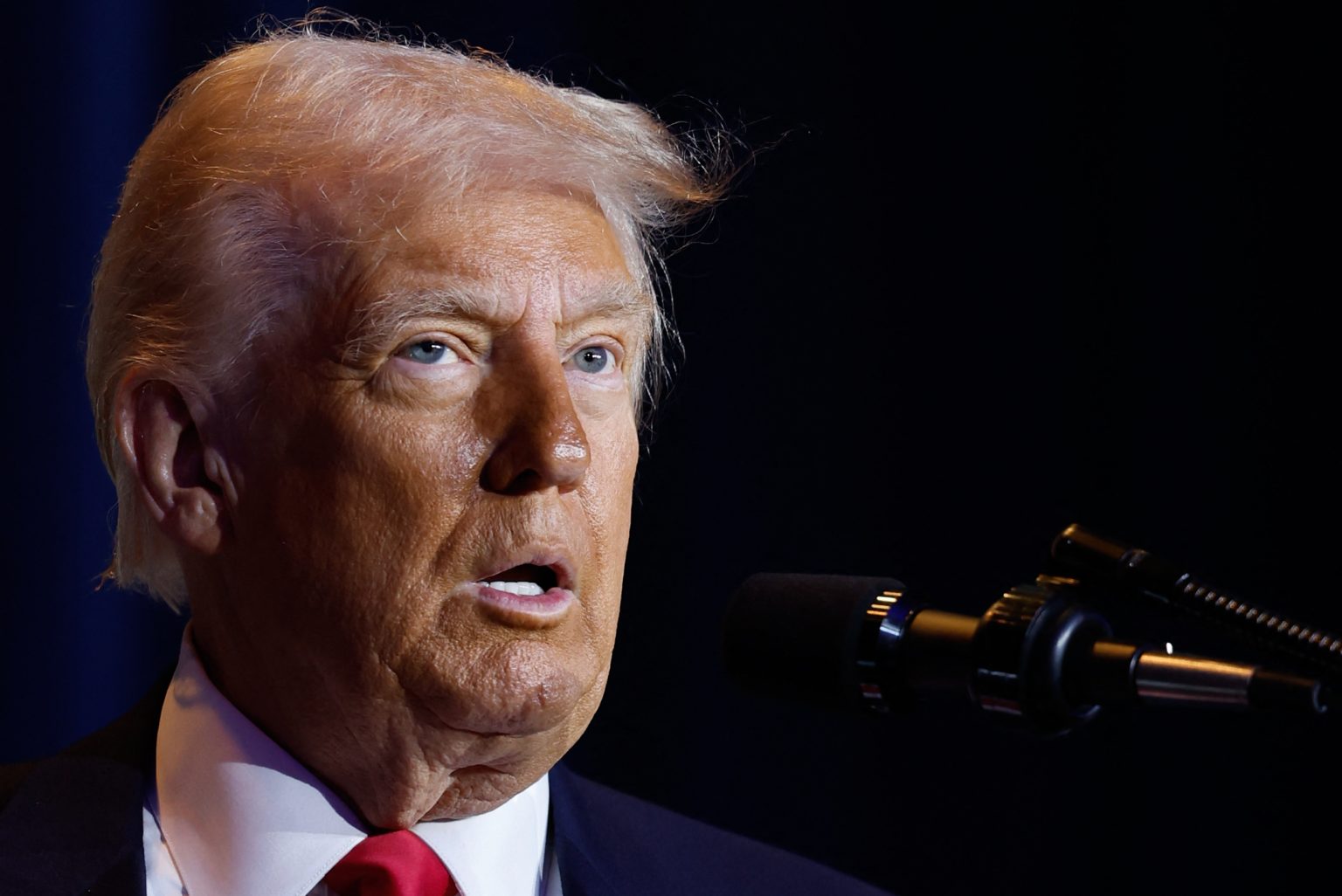Summarize this content to 2000 words in 6 paragraphs President Donald Trump should have every chance within the law to carry out his policies. Congress can eliminate foreign aid from the budget or end the independence of agencies like the Equal Employment Opportunity Commission. But can anyone stop him from doing these things outside the law?Despite a suggestion from Vice President JD Vance that the courts acted “illegally” in recent rulings restraining Trump, it’s the courts that have the final say about what is legal and what is illegal, not Vance.But what can the courts do if Trump ignores them when they rule against him?Here are some ideas.
President Donald Trump speaks during the National Prayer Breakfast at the Washington Hilton in Washington, DC, on Feb. 6.
President Donald Trump speaks during the National Prayer Breakfast at the Washington Hilton in Washington, DC, on Feb. 6.
TING SHEN/AFP via Getty Images
Presidents aren’t above the law. The only thing new in last year’s Supreme Court presidential immunity ruling is that presidents can’t be criminally prosecuted for exercising core powers.But that decision also made clear that courts have the power to stop presidents from violating the law. Let’s say a court orders Trump to obey a law. He can appeal any such ruling, and it could take years to resolve the dispute. But what can a court do if it orders him to follow its ruling during the appeal and he ignores the order?
A court could order Trump or an underling to appear for a contempt of court hearing, but an underling is more likely to show up.If they don’t show up, the court could simply hear the contempt case in the person’s absence and rule that the person has waived their right to defend against a contempt finding by ignoring the order to attend court.Alternatively, the court could order the person arrested and brought to court. The court would have little chance of arresting Trump, but it could succeed against an underling, and Trump couldn’t stop it. A civil arrest to enforce a court order isn’t a criminal prosecution, and Trump’s pardon power only applies to criminal prosecutions.Fines for ignoring court orders are a third way. A party refusing to appear in court as ordered could be fined daily until they show up. Life on a middling government salary is bad enough without it being undercut by $1,000 a day fines.And even if Trump could somehow prevent collection for the next four years, what happens when a new administration orders collection? Don’t bet on Trump paying the underling’s fine, and that $1,000 a day could add up to well over $1,000,000 before Trump leaves office.Which brings us to the possibility of fining Trump himself or perhaps Elon Musk for ignoring court orders to obey the law. The dollar amount of any fine for civil contempt should be set at an amount likely to compel compliance. Musk won’t miss $1,000,000 any more than the rest of us will miss the soon-to-be disappearing penny. His wealth is so immense that he would likely only notice if the fine were somewhere around $7 million a day—an amount that might cost him around $10 billion by 2029. If the amount were enforced against Musk or an appropriate amount against Trump, it might make the court orders effective even against defiance.And that’s were the last important part of the puzzle comes in. It would be best if the Supreme Court ratifies any fines. And it likely would—especially if the orders were to compel attendance at court. Even if Trump wins an underlying case, the power of the courts to compel attendance at court is fundamental. Indeed, the best thing for legal stability in this country would be for the court to take up any contempt rulings promptly and uphold the lower courts’ powers.Vance’s criticism of the courts is worrying, but we can still hope to avoid a showdown. If Trump is lucky, Congress will enact in law the things he is trying to do outside of it. If instead he presses his demand for personal power, we can hope he will follow the legal path through the courts to defend it. But if he chooses to defy the courts, they are certainly able and should definitely be willing to defend the rule of law regardless of political views. After all, a right-wing tyranny today could become a left-wing tyranny tomorrow. Perhaps it would be better to have no tyranny at all.Thomas G. Moukawsher is a former Connecticut complex litigation judge and a former co-chair of the American Bar Association Committee on Employee Benefits. He is the author of the new book, The Common Flaw: Needless Complexity in the Courts and 50 Ways to Reduce It.The views expressed in this article are the writer’s own.







